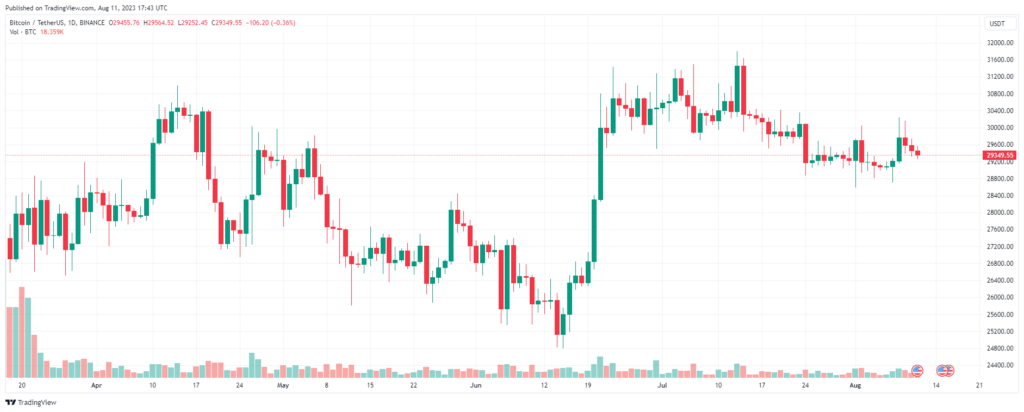- The SEC requested newly written comments and opinions on a proposed rule change to allow issuers to list a Bitcoin spot ETF.
- Blackrock, Fidelity and other Wall Street gamblers await the Commission’s decision on their own ETF applications.
- Cathie Wood, CEO of Ark Invest, predicted the delay on Bloomberg TV, adding that there would be simultaneous approvals in the future.
- The price of Bitcoin hardly reacted to the news of a slowdown.
The U.S. Securities and Exchange Commission (SEC) is inviting new public comment on the Ark 21Shares Bitcoin ETF filing, delaying a decision on the filing, as anticipated by Cathie Wood, CEO of ARK Invest.
Under standard operating procedure, the SEC has 240 days to make a final decision on an application after the review process begins.
Stakeholders interested in contributing to the discourse were urged to submit “written data, views and arguments” within a 21-day window. In June, the regulatory body stated its intention to “approve or disapprove the application by the set date of August 13, or initiate proceedings to determine whether it should be disapproved.”
“Pretty Standard,” Bloomberg’s Eric Balchunas said of the SEC’s request for public input on the proposed rule change.
ARK Invest CEO Cathi Wood anticipated the delay, according to an interview. “I think if the SEC is going to approve a bitcoin ETF, it will approve more than one at a time.” Wood added predicting concurrent SEC approvals in the future.

8 Bitcoin ETFs in play
The SEC has received eight Bitcoin ETF filings, including filings from BlackRock and Fidelity. Issuers appear to be in a race to capture the inaugural Bitcoin ETF, a product that would allow a slew of US investors to access Bitcoin without actually owning the cryptocurrency.
BlackRock CEO Larry Fink opined that approval is a matter of when, not if, indicating approval of his company’s submission within four to six months.
Historically, the SEC has denied Bitcoin ETF applications on the grounds of market manipulation and inadequate oversight. The prevailing backlash points to the approval of Bitcoin Futures ETFs, a similar product.

